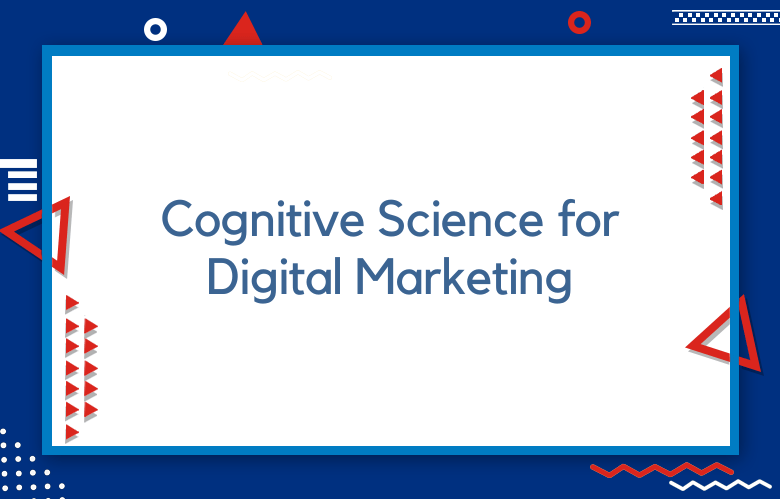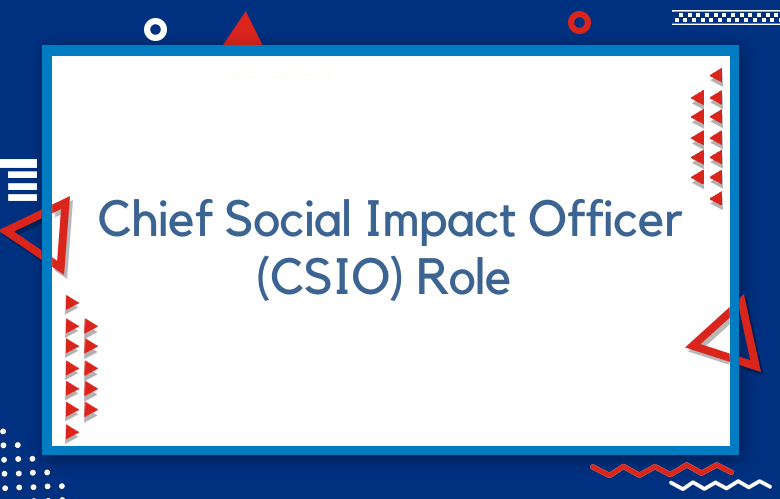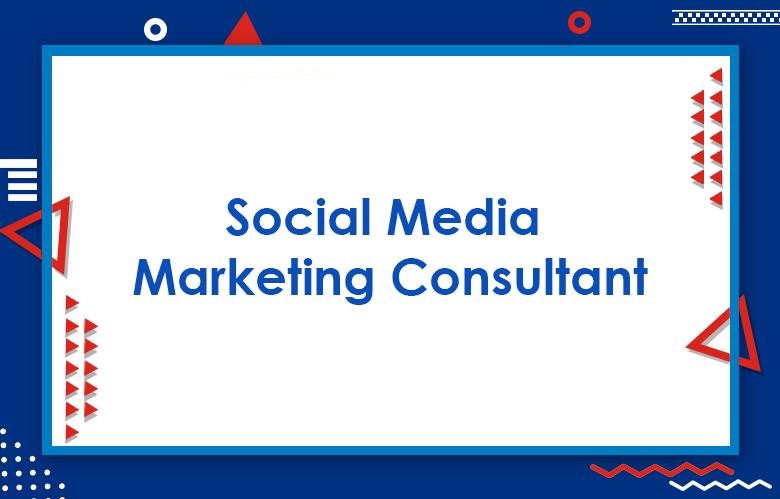Cognitive Science for Digital Marketing

Cognitive science plays a significant role in understanding consumer behavior and decision-making, making it an invaluable resource for digital marketers. By incorporating cognitive principles into marketing strategies, businesses can effectively engage their target audience and drive conversions.
Cognitive science enhances digital marketing strategies by providing insights into people’s perceptions, thoughts, and decisions. Understanding cognitive processes can help marketers design more effective campaigns, advertisements, and user experiences.
Cognitive Science for Digital Marketing
As the digital marketing landscape continues to evolve, it’s becoming increasingly important for marketers to understand the cognitive processes that drive consumer behavior. Cognitive science, an interdisciplinary study, explores the intricacies of human perception, attention, memory, and decision-making, which have significant implications for marketing strategies.
In recent years, businesses have leveraged cognitive science principles to enhance their digital marketing efforts. By understanding how consumers process information, marketers can create more engaging, memorable, and persuasive campaigns that resonate with their target audience.
One key aspect of cognitive science in digital marketing involves optimizing content to capture consumer attention in an increasingly saturated online environment. Marketers can leverage insights from cognitive science to create visually appealing designs and messaging that stand out from the competition.
Understanding Attention and Perception
Cognitive science provides insights into how consumers process information and what captures their attention. Marketers can use these insights to create visually appealing content and advertisements that stand out in crowded digital spaces.
Leveraging Social Proof
The principle of social proof, which suggests that the actions of others influence people, can be incorporated into digital marketing strategies. Including customer reviews and testimonials in marketing materials can boost credibility and influence consumer decisions.
Appealing to Emotions
Emotions play a significant role in consumer decision-making. Digital marketers can leverage cognitive science to create emotionally compelling content that resonates with their target audience and drives action.
Utilizing Cognitive Biases
Understanding cognitive biases, such as the anchoring effect or the scarcity principle, allows marketers to create persuasive messages that appeal to consumers’ psychological tendencies.
By integrating cognitive science into digital marketing strategies, businesses can optimize their efforts and create more effective campaigns that resonate with their target audience.
Mind Over Marketing: The Role of Cognitive Science in Digital Strategies
Mind Over Marketing
The Role of Cognitive Science in Digital Strategies” encapsulates how cognitive science principles underpin successful digital marketing strategies by delving into the workings of the human mind.
It’s about leveraging our understanding of cognitive processes—how people think, learn, remember, and make decisions—to craft marketing strategies that resonate deeply with consumers on a psychological level. Here’s a breakdown of how cognitive science principles can enhance various aspects of digital marketing:
Understanding Consumer Behavior
Attention and Perception
Use cognitive science to understand what captures consumers’ attention. This involves strategically using visual and auditory elements in advertisements to stand out in a crowded digital space.
Memory Processing
Apply principles of how memory works to make brands and messages more memorable. Techniques like repetition, storytelling, and association can make a brand more easily recalled.
Enhancing Decision-Making
Heuristics and Biases
Leverage common mental shortcuts and biases in decision-making processes. For instance, the scarcity principle can make products seem more desirable when they appear limited in availability.
Emotional Engagement
Emotional resonance can significantly impact consumer decisions. Crafting messages that evoke emotions can lead to stronger brand connections and loyalty.
Optimizing User Experience
Ease of Use
A fundamental understanding of human-computer interaction and cognitive load theory can lead to more intuitive website and app designs, reducing friction and enhancing user satisfaction.
Persuasive Design
Cognitive science can inform persuasive design principles, subtly guiding users towards desired actions, such as signing up for a newsletter or completing a purchase.
Crafting Compelling Content
Narrative Psychology
Storytelling can be a powerful tool in digital marketing, as humans are naturally drawn to stories. Understanding narrative psychology can help create compelling brand stories that engage and inspire.
Language and Framing
How information is framed and presented can significantly influence how it’s perceived and acted upon. Cognitive science can guide the use of persuasive language and effective communication strategies.
Cultural and Social Influences
Cultural Cognition
Acknowledge that cultural backgrounds influence information processing and understanding. Tailoring content to align with cultural norms and values can enhance global marketing strategies.
Social Proof and Influence
Understanding the impact of social dynamics, including the influence of peers and communities, can be crucial in shaping consumer behavior and preferences.
Continual Learning and Adaptation
Neuroplasticity and Learning
Recognizing that consumer preferences and behaviors evolve, digital marketing strategies must be adaptable and continually updated based on new insights and data.
Feedback Loops
Implement mechanisms to capture consumer feedback and behavior, feeding this information into strategy development to create more personalized and effective marketing efforts.
The Science Behind Persuasion: How Cognitive Psychology Shapes Digital Marketing
In digital marketing, persuasion is critical for driving conversions and shaping consumer behavior. To effectively persuade and influence their audience, marketers have increasingly turned to cognitive psychology for insights into the workings of the human mind.
Cognitive psychology explores mental processes such as perception, attention, memory, and decision-making, significantly influencing marketing effectiveness. By understanding the principles of cognitive psychology, marketers can create persuasive content that captures attention and drives desired actions.
Harnessing the Power of the Brain: Cognitive Science and Digital Marketing
In today’s highly competitive digital landscape, understanding the complexities of human cognition is crucial for creating successful marketing strategies. The field of cognitive science, which explores the intricacies of the human mind, has become an essential resource for digital marketers seeking to engage and persuade their target audience.
Cognitive science delves into the mental processes that shape our perceptions, emotions, and decision-making. By integrating insights from cognitive science into digital marketing, businesses can create more impactful campaigns that resonate with consumers and drive desired outcomes.
One key area where cognitive science can inform digital marketing is understanding attention and perception. Marketers can leverage cognitive principles to create content that stands out in a cluttered digital environment, ensuring their target audience sees and hears their message.
Neuromarketing in the Digital Age: A Cognitive Science Approach
In the digital era, marketing has evolved beyond traditional methods, giving rise to the field of neuromarketing—the application of neuroscience and cognitive science to marketing strategies. As consumer behavior becomes increasingly complex and dynamic, understanding the mental processes that drive decision-making is critical for businesses looking to succeed in the digital landscape.
Neuromarketing leverages neuroscience and cognitive science insights to understand how consumers perceive, process, and respond to marketing messages. By employing cutting-edge research techniques like functional magnetic resonance imaging (fMRI) and electroencephalography (EEG), neuromarketing enables businesses to delve into the subconscious preferences and emotions that shape consumer behavior.
The Cognitive Connection: Using Psychology to Drive Digital Marketing Success
Understanding the human mind in digital marketing is critical for driving engagement, boosting conversions, and fostering long-term customer relationships. Psychology offers valuable insights into the cognitive processes that shape consumer behavior, allowing businesses to optimize their marketing strategies for maximum impact.
By applying psychological principles to digital marketing, businesses can tap into the thought patterns and emotional responses that drive consumer decision-making. Here are a few ways psychology can inform digital marketing:
Leveraging Social Proof
The behaviors and opinions of others naturally influence humans. Marketers can utilize social proof tactics such as customer testimonials, ratings, and influencer endorsements to build trust and credibility with potential customers.
Utilizing Reciprocity
The principle of reciprocity suggests that people feel obliged to give back when they receive something. Marketers can apply this concept by offering free content, trials, or discounts to encourage customer loyalty and drive conversions.
Understanding Cognitive Biases
Humans are prone to systematic errors in thinking, known as cognitive biases. Marketers can leverage these biases to create persuasive messaging that resonates with consumers and drives desired actions.
By incorporating psychology into their digital marketing strategies, businesses can create more effective campaigns that drive customer engagement and foster long-term success. By understanding the cognitive factors that shape consumer behavior, marketers can optimize their efforts and stay ahead of the competition in an ever-evolving digital landscape.
Conclusion
Marketing automation will play a significant role in digital marketing strategies in 2024 and beyond. By leveraging the power of automation tools, businesses can streamline their marketing efforts, save time, and achieve better results.
Marketers should invest in AI-driven solutions that enable real-time personalization and data-driven decision-making to stay ahead of the competition. Additionally, omnichannel marketing automation and the integration of chatbots will further enhance customer experiences and drive conversions.



